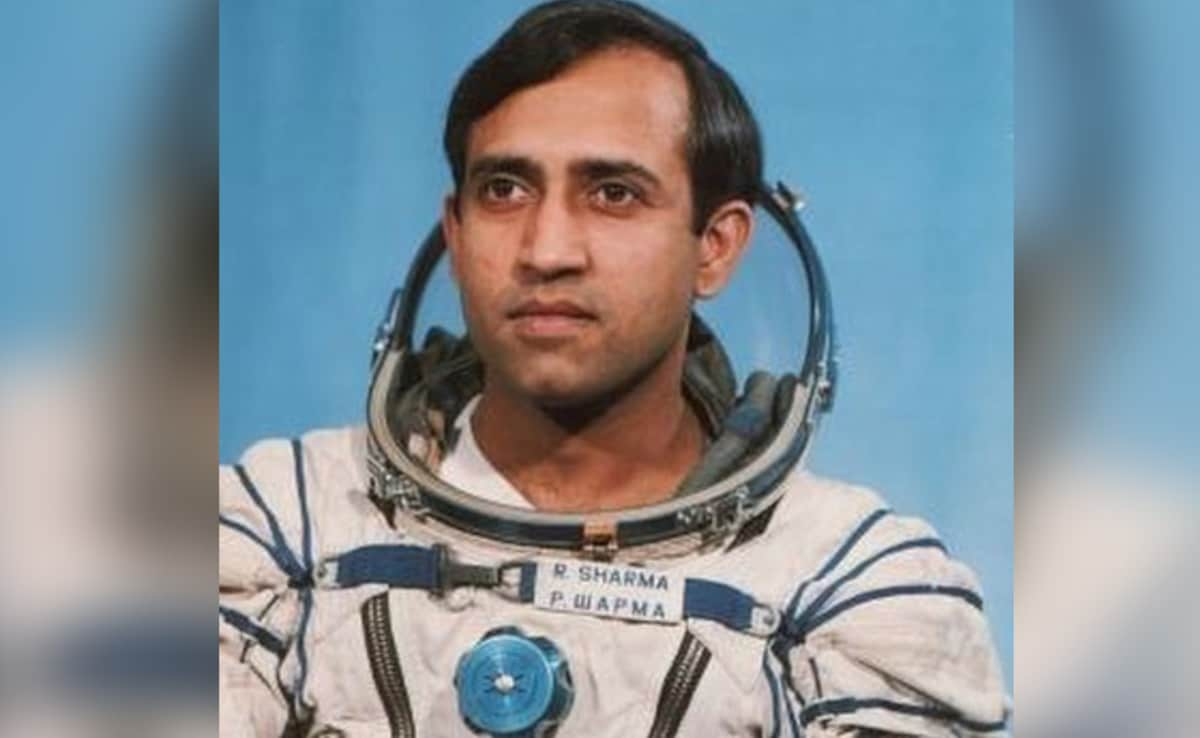Having an expansive yet inclusive worldview is often difficult when your feet are planted on the ground and your existence is shaped by a host of factors that divide humanity. But when one goes into space, as many spacefarers have testified, boundaries tend to blur and you see the Earth for what it is – a pale blue dot floating in an endless universe, which is also the only place that humans can call home.
As the only Indian to have stepped into the final frontier, Wing Commander Rakesh Sharma shared these thoughts, and many more, with NDTV on how the human race can work towards an equitable division of resources, fewer conflicts and – importantly – avoid “building hell on some far-off planet”.
In an exclusive interview with NDTV’s Science Editor Pallava Bagla, Wing Commander Sharma said one of the triggers for his thoughts on a world undivided by imaginary lines was a statement by Prince Sultan ibn Salman al Saud of Saudi Arabia, who went up into space in 1985, came back and said: “You don’t see boundaries from space.”
“Obviously, when you do go up and see the beauty that is there and also that the boundaries are not visible, one always wonders why we haven’t been able to break out of the circle of conflict for centuries now. The root cause of this is that the powerful have always been dispossessing the weak, even of the natural resources which were under them. So, obviously, the distribution of wealth has not been equitable,” India’s first astronaut said.
“So, in my opinion, space really can be leveraged to improve the socio-economic standards of people of all countries. And I think ISRO (Indian Space Research Organisation) has demonstrated this beautifully because of the vision of (Vikram) Sarabhai and the earlier stalwarts who have guided the space programme,” he added.
Wing Commander Sharma, who went into space aboard a Russian rocket in 1984, said the benefits of space technology applications have been put to good use in India, from tele-medicine, tele-education and tele-consultation to remote sensing
“If all spacefaring nations can come together and start collaborating instead of competing. And, whatever we get out of space, we share, because the United Nations has mentioned very clearly that space belongs to all of humanity,” the former Air Force pilot said.
Emphasising that inclusivity is the need of the hour he added, “So let us not start colonising using an exclusive model. Whatever farming we do, whether on asteroids or the Moon or Mars, if we can share that wealth with everybody back on Earth, I think we will be removing the root cause of conflict.”
Lone Soldier?
Last year, India signed the US-led Artemis Accords, which encourage cooperation in space but also allow private companies to mine resources. India’s space policy also has a similar clause.
When Wing Commander Sharma was asked whether his views did not, then, put him in a minority, he said he was “not ashamed” to be there and that there was no alternative to cooperation.
“We have tried all other methods, and they all ended up in conflict. So, is that what we want? Do we want to export conflict into space? We have to find a way. The private sector being there is no guarantee that it’s going to end up in conflict,” he said.
Urging everyone to try a different approach, the astronaut said, “If we all see the light at the end of the tunnel; if we can all believe that the Earth can be a better place for everybody; if we can make development sustainable; and if you can carry all these messages, then heaven is right here on Earth, on our planet. So let us not go and build hell on some far-off planet.”
“Let’s get the model right. It will help us, our society, and I think it will help in reducing conflict. After all, all of us are going to have children, grandchildren and great-grandchildren. So let’s think about them,” he said.







![JK Tyre celebrates India’s Automotive Emergence with the Landmark 20th Edition of the Indian Car of the Year [ICOTY]](https://i0.wp.com/news4exchange.co.in/wp-content/uploads/2025/01/30765_JKTYER_image-sIpKEE.jpeg?resize=150%2C150&ssl=1)






